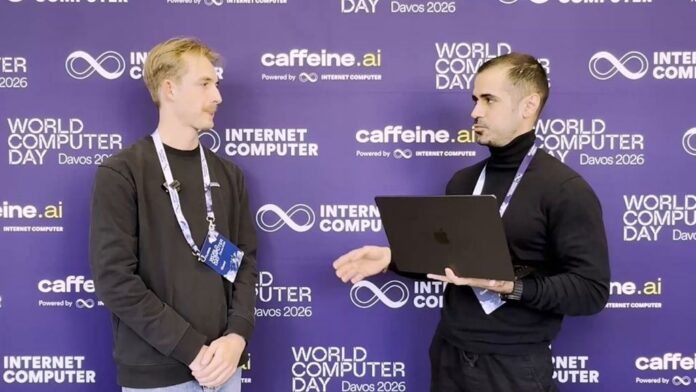Russell Okung, the former Carolina Panthers NFL player, has a vision that’s as bold as it is groundbreaking. After a career in professional football and a significant personal commitment to Bitcoin, Okung is now introducing Bitball, a new flag football league where players will be paid in Bitcoin. The idea behind Bitball isn’t just to shake up the world of sports – it’s about creating a new ecosystem where players, fans, and communities can build wealth through the power of cryptocurrency.
The announcement of Bitball comes after Okung’s unsuccessful attempts to convince NFL owners to see the potential of Bitcoin. While many athletes have flirted with cryptocurrency, Okung’s decision to take half of his $13 million salary in Bitcoin in 2020 set him apart. His unwavering belief in Bitcoin as more than just a financial asset but as a tool for financial freedom has informed the foundation of Bitball. “No more middlemen taking their cuts or making backdoor deals,” Okung said in an interview. “Now, it’s about pure sport and pure Bitcoin, which means pure opportunity.”
The roots of Bitball can be traced back to Okung’s own journey with Bitcoin. After hearing about the cryptocurrency during his time in the NFL, he was captivated by its potential and its promise of financial independence. “Bitcoin isn’t just an investment—it represents freedom in digital form,” Okung explained. He believes that athletes, especially those in professional sports, often face a dangerous cycle of losing generational wealth through mismanagement and poor financial decisions. His decision to take his salary in Bitcoin was a move that not only secured his future but also made a cultural statement that would ripple through the world of sports.
The first official Bitball game will take place on December 10 in Abu Dhabi at Al Nahyan Stadium. The match will feature 24 professional football players and is set to be a momentous event in the world of sport and cryptocurrency. Interestingly, holders of Bitcoin conference tickets will be granted free access to the game, allowing even more people to engage with the sport and its mission of merging cryptocurrency with football. It’s clear that Okung is not just building a league; he’s building a movement that aims to challenge the traditional financial systems in sports.
Okung’s enthusiasm for Bitcoin is not without merit. His personal investment in Bitcoin has paid off substantially. When he received 240 Bitcoin in 2020, it was valued at $6.5 million. Today, that same amount would be worth around $21 million. Even with Bitcoin’s known volatility, Okung has held firm in his belief that the cryptocurrency is a long-term asset. “I didn’t do this ‘pay me in Bitcoin’ thing to trade it in for dollars,” he stated. “I took a risk, and it turns out it was a smart risk.”
His approach to Bitcoin is centred around building wealth, but not just for himself. Okung sees Bitcoin as a foundation for creating new value. “I also invest in Bitcoin mining,” he noted, indicating his interest in both the energy sector and land, which he believes are essential components of a sustainable and prosperous society. To Okung, Bitcoin is not just a currency; it is a symbol of a new way forward for individuals and communities looking to break free from traditional financial systems.
The concept of Bitball, with its promise of Bitcoin-based compensation, presents a revolutionary opportunity for athletes. Players in the league will have the chance to earn Bitcoin rather than traditional fiat money, which Okung sees as an opportunity to empower athletes to retain control of their wealth and avoid the pitfalls that so many professional players face when their career earnings evaporate. “We’re moving away from seeing athletes go broke and losing generational wealth,” Okung explained. His goal is to create a league that focuses on the players, the sport, and the community, with Bitcoin serving as the vehicle for wealth creation and long-term security.
While the concept of Bitcoin payments in sports is still new, Okung’s work with Bitball has already generated significant interest. He’s reached out to former NFL players, many of whom are enthusiastic about the idea of a football league that integrates cryptocurrency as a core element. The cultural impact of his initiative has been profound, with many players eager to be part of something that transcends traditional sports and finance. “It’s been great to see that I made this cultural statement, and the response is for people to lean in and go deep,” Okung said, reflecting on the positive reception from athletes and fans alike.
Okung’s commitment to Bitcoin and its role in sports is not just about his league; he sees this as part of a broader movement. The surge in Bitcoin’s value following Donald Trump’s election victory, including a record high of $93,477, is something Okung has been closely watching. While some speculate that Bitcoin could reach $1 million if Trump follows through on his promise to create a Bitcoin Reserve in the U.S., Okung believes that the broader support of Bitcoin, including Trump’s endorsement, signals that cryptocurrency is now being taken seriously by mainstream institutions.
Bitcoin’s recent surge in value has garnered attention, but Okung remains focused on the long-term. He’s well aware of the volatility of cryptocurrency markets, but he remains confident in Bitcoin’s future. “When I first bought Bitcoin, I knew about the volatility and studied the market cycles,” he explained. “I expected highs and lows, but one key metric stood out: over a four-year horizon, Bitcoin generally goes up.” This long-term perspective on Bitcoin’s potential has reinforced his decision to continue holding onto his digital assets, undeterred by short-term fluctuations in price.
As for the future, Okung is optimistic about the role Bitcoin could play in other sports leagues. While his focus remains on the flag football league for now, he envisions a time when other professional sports like baseball and basketball could adopt Bitcoin as a method of payment for their athletes. “If nobody else is competitive enough to do it, then I’ll do it,” he said with characteristic confidence. “But for now, we’re focused on flag football.”
In many ways, Bitball represents the intersection of sports, technology, and cryptocurrency, bringing these worlds together in a way that has never been seen before. It’s a bold experiment that could reshape how athletes and fans interact with their favourite sports. If successful, it could pave the way for other leagues to follow suit, making Bitcoin payments a staple of professional sports. Okung’s dream isn’t just to create a league; it’s to create a new financial ecosystem where Bitcoin serves as the cornerstone of a thriving sports community.
While the idea of paying athletes in Bitcoin may still seem unconventional to some, Okung’s work with Bitball shows how cryptocurrency can empower individuals and change the way we think about wealth, sports, and financial freedom. For those who have always wanted to play or invest in football, Bitball might just be the ticket to a new era of opportunity. As Bitcoin continues to grow in popularity and influence, it’s clear that Okung’s vision for a Bitcoin-powered sports league is only the beginning of what could be a much larger movement.




